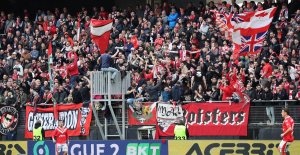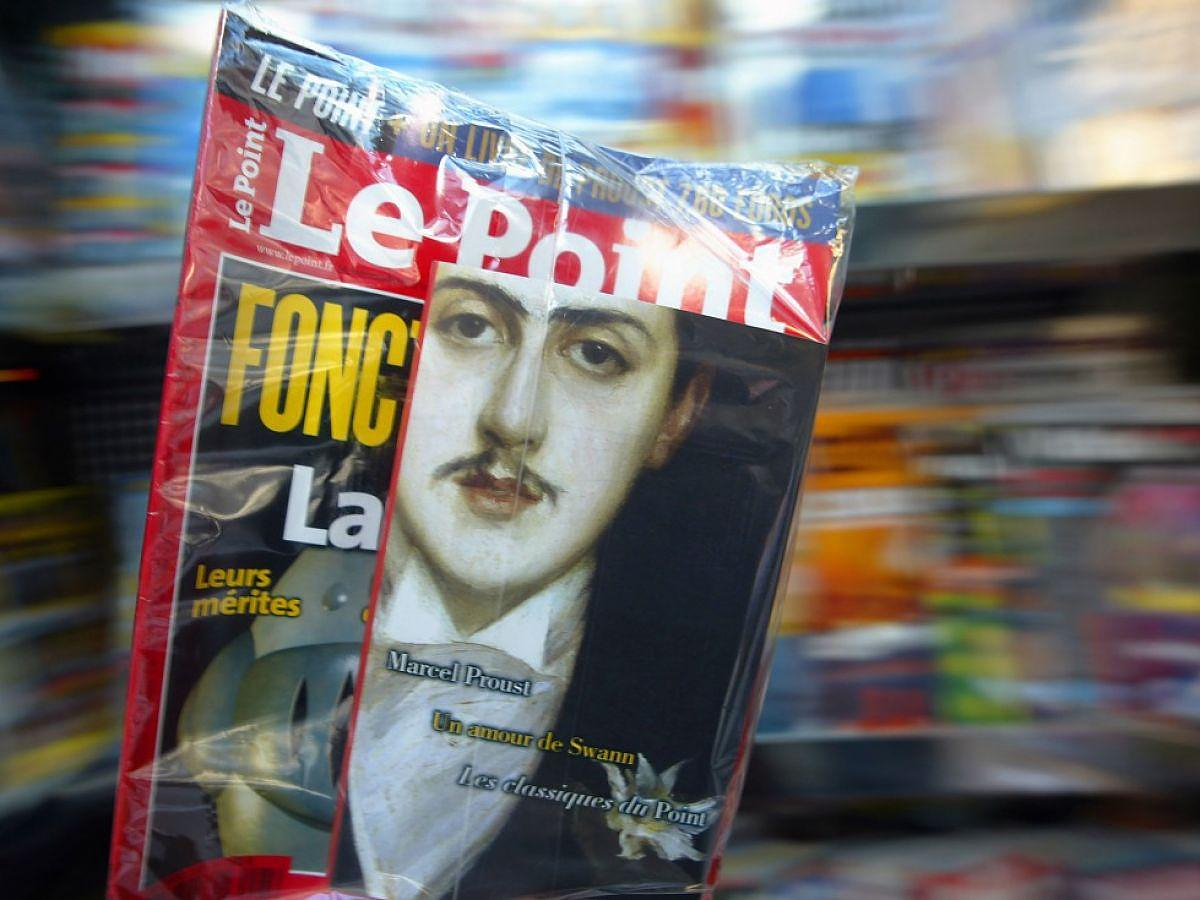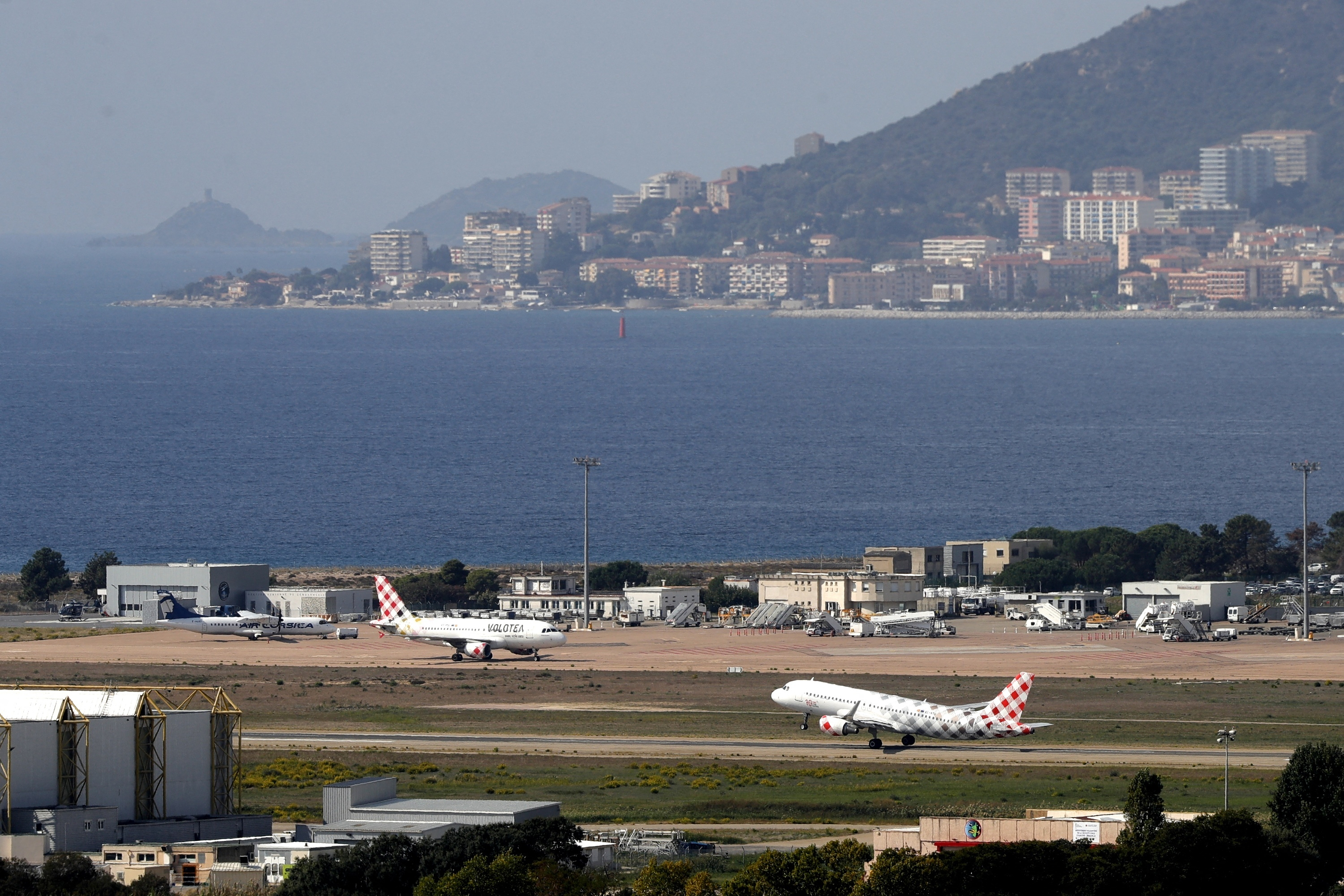Saving, siphoning off and redistributing - this triad is Europe's answer to the record high electricity prices. On Friday, Federal Economics Minister Robert Habeck and his 26 counterparts from the other EU countries, who are also responsible for energy, want to agree on immediate measures to counteract the high electricity prices.
The focus here is on two measures: binding requirements from Brussels to save electricity in times of peak consumption. And the proposal from the European Commission and some member states to skim off profits from highly profitable electricity producers in order to distribute them to households and companies that are particularly affected.
The profit skimming would hit the companies that generate electricity particularly cheaply from sources such as solar power, wind power, hydroelectric power, nuclear power and coal. You are currently making particularly high profits due to the peculiarities of the electricity market. Because on the electricity exchange, the price depends on the operating costs of the most expensive power plant that is currently supplying electricity. At present, these are gas-fired power plants.
These companies are now supposed to hand over part of their high profits to the state. A draft by the EU Commission for corresponding rules has already caused a stir on the energy market because a specific number was mentioned for the first time: According to this, the member states could leave the companies concerned with 200 euros in sales per megawatt hour. Anything beyond that would have to be paid by the company.
"Member States limit the income of producers (...) from the sale of electricity to a maximum of 200 euros per MWh of electricity," the paper reads. However, it is still a very early draft; The document also contains comments such as "we have to be more specific here" or "laypeople don't understand that".
The sales limit of 200 euros per megawatt hour could also change. "200 euros per megawatt hour will not necessarily have been the last word," says Simone Tagliapietra, energy expert at the Brussels think tank Bruegel. "Member States will discuss the final amount in great detail."
However, the economist warns against too high expectations of this measure: "Clearly, the excess profit tax is not a panacea," says Tagliapietra. “It is an important element because it satisfies a need for fairness. But it will not solve the problems on the electricity market on its own.”
In fact, it is currently difficult to foresee what such an excess profit tax – which for political reasons may not be called that at EU level or in Germany – would actually bring.
"It's completely open how much money the state can make if it siphons off the profits. It may be that he earns less than he hoped for," says Götz Reichert from the Freiburg think tank Center for European Politics (CEP). “How high the earnings could be depends on many factors and at the moment the markets are going completely crazy. Therefore, nobody can currently reliably forecast the income.”
The first cautious estimates by the federal government show that the possible income will pale in comparison to the planned aid for households and companies. The measures could redistribute an amount in the double-digit billions, Federal Finance Minister Christian Lindner (FDP) predicted relatively vaguely.
Habeck has to be prepared for long discussions, because Italy and other member states are demanding further measures. They want to change the current rules of the electricity market at short notice in order to decouple the electricity price from the currently high gas price. This should lower the price of electricity. Economists like Tagliapietra warn against such far-reaching interventions in the electricity market.
Economically liberal member states are also fighting against such far-reaching interventions. "We are absolutely against it," says an EU diplomat. “That would discourage consumers from saving electricity. And we don't know what the consequences of such a radical intervention would be.” In fact, the existing proposals shake liberal economic policy convictions: “Everyone is ready to look at the proposals,” said a high-ranking EU diplomat. "Two or three months ago it was completely different."
Germany and other economically liberal member states had long resisted interventions in the energy market. "We had difficult discussions about the excess profit tax," says the group leader of the European People's Party, Manfred Weber, to WELT. He refers to the members of the CDU and CSU in the European Parliament. "Not everyone still supports this proposal, but we have amazingly broad support."
"Everything on shares" is the daily stock exchange shot from the WELT business editorial team. Every morning from 7 a.m. with our financial journalists. For stock market experts and beginners. Subscribe to the podcast on Spotify, Apple Podcast, Amazon Music and Deezer. Or directly via RSS feed.

 His body naturally produces alcohol, he is acquitted after a drunk driving conviction
His body naturally produces alcohol, he is acquitted after a drunk driving conviction Who is David Pecker, the first key witness in Donald Trump's trial?
Who is David Pecker, the first key witness in Donald Trump's trial? What does the law on the expulsion of migrants to Rwanda adopted by the British Parliament contain?
What does the law on the expulsion of migrants to Rwanda adopted by the British Parliament contain? The shadow of Chinese espionage hangs over Westminster
The shadow of Chinese espionage hangs over Westminster What High Blood Pressure Does to Your Body (And Why It Should Be Treated)
What High Blood Pressure Does to Your Body (And Why It Should Be Treated) Vaccination in France has progressed in 2023, rejoices Public Health France
Vaccination in France has progressed in 2023, rejoices Public Health France Food additives suspected of promoting cardiovascular diseases
Food additives suspected of promoting cardiovascular diseases “Even morphine doesn’t work”: Léane, 17, victim of the adverse effects of an antibiotic
“Even morphine doesn’t work”: Léane, 17, victim of the adverse effects of an antibiotic Collection of booklet A stalls in March
Collection of booklet A stalls in March Kering expects a 40 to 45% drop in operating profit in the first half
Kering expects a 40 to 45% drop in operating profit in the first half Smartphones, televisions, household appliances… MEPs adopt a “right to repair”
Smartphones, televisions, household appliances… MEPs adopt a “right to repair” Fintechs increasingly focused on business services
Fintechs increasingly focused on business services The standoff between the organizers of Vieilles Charrues and the elected officials of Carhaix threatens the festival
The standoff between the organizers of Vieilles Charrues and the elected officials of Carhaix threatens the festival Strasbourg inaugurates a year of celebrations and debates as World Book Capital
Strasbourg inaugurates a year of celebrations and debates as World Book Capital Kendji Girac is “out of the woods” after his gunshot wound to the chest
Kendji Girac is “out of the woods” after his gunshot wound to the chest The Court of Auditors scrutinizes the management and projects of the Center Pompidou
The Court of Auditors scrutinizes the management and projects of the Center Pompidou Skoda Kodiaq 2024: a 'beast' plug-in hybrid SUV
Skoda Kodiaq 2024: a 'beast' plug-in hybrid SUV Tesla launches a new Model Y with 600 km of autonomy at a "more accessible price"
Tesla launches a new Model Y with 600 km of autonomy at a "more accessible price" The 10 best-selling cars in March 2024 in Spain: sales fall due to Easter
The 10 best-selling cars in March 2024 in Spain: sales fall due to Easter A private jet company buys more than 100 flying cars
A private jet company buys more than 100 flying cars This is how housing prices have changed in Spain in the last decade
This is how housing prices have changed in Spain in the last decade The home mortgage firm drops 10% in January and interest soars to 3.46%
The home mortgage firm drops 10% in January and interest soars to 3.46% The jewel of the Rocío de Nagüeles urbanization: a dream villa in Marbella
The jewel of the Rocío de Nagüeles urbanization: a dream villa in Marbella Rental prices grow by 7.3% in February: where does it go up and where does it go down?
Rental prices grow by 7.3% in February: where does it go up and where does it go down? Europeans: “All those who claim that we don’t need Europe are liars”, criticizes Bayrou
Europeans: “All those who claim that we don’t need Europe are liars”, criticizes Bayrou With the promise of a “real burst of authority”, Gabriel Attal provokes the ire of the opposition
With the promise of a “real burst of authority”, Gabriel Attal provokes the ire of the opposition Europeans: the schedule of debates to follow between now and June 9
Europeans: the schedule of debates to follow between now and June 9 Europeans: “In France, there is a left and there is a right,” assures Bellamy
Europeans: “In France, there is a left and there is a right,” assures Bellamy These French cities that will boycott the World Cup in Qatar
These French cities that will boycott the World Cup in Qatar Football: VAFC supporters are ironic after their descent into National
Football: VAFC supporters are ironic after their descent into National Tennis: Carlos Alcaraz should play in Madrid
Tennis: Carlos Alcaraz should play in Madrid Football: victim of discomfort in the middle of a match in mid-April, Evan Ndicka will resume training with AS Roma
Football: victim of discomfort in the middle of a match in mid-April, Evan Ndicka will resume training with AS Roma Ligue 1: PSG almost champion, OM, shock for the C1… 5 reasons to follow an exciting evening
Ligue 1: PSG almost champion, OM, shock for the C1… 5 reasons to follow an exciting evening


















